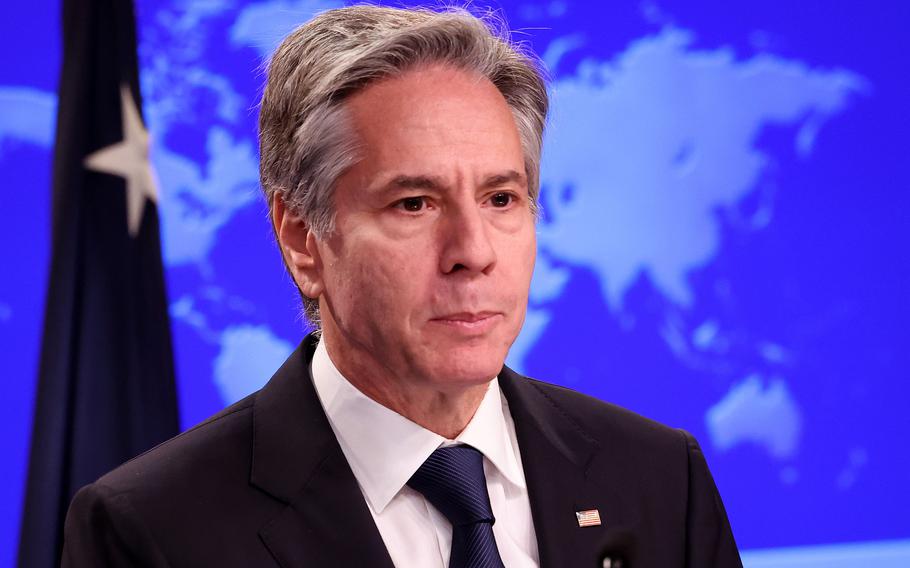
U.S. Secretary of State Antony Blinken speaks during a news conference at the State Department on Aug.15, 2023, in Washington, D.C. (Kevin Dietsch, Getty Images/TNS)
(Tribune News Service) — The United States and Iran are set to exchange prisoners as early as Monday under an agreement that’s seen as a first step toward fresh talks to reimpose limits on the country’s nuclear program, according to people familiar with the matter.
The people, who asked not to be identified discussing private deliberations, said the exact date of the swap isn’t yet set but it’s likely to be on Sept. 18, a day before world leaders convene in New York for the annual meeting of the United Nations General Assembly.
The deal, which also saw the U.S. allow Iran to access $6 billion in funds that were frozen in South Korea, has already opened President Joe Biden up to criticism that he’s encouraging more hostage taking and shouldn’t be doing any sort of deal with the regime.
“As we have said from the outset, what is being pursued here is an arrangement wherein we secure the release of five wrongfully held Americans,” National Security Council spokeswoman Adrienne Watson said in a statement. “This remains a sensitive and ongoing process. While this is a step in the process, no individuals have been or will be released into U.S. custody this week.”
The Biden administration has rejected claims by Iran that there will be no restrictions on $6 billion in oil sales proceeds that will be freed up as part of a prisoner swap, insisting that Iran will be allowed to use the funds solely for humanitarian purposes.
As part of the pending deal to swap five Americans held by Iran with five Iranians in U.S. custody, Secretary of State Antony Blinken notified Congress on Monday of a waiver that will assure German, Irish, Qatari, South Korean and Swiss banks that they can transfer the $6 billion from South Korea without fear of running afoul of US sanctions.
Administration officials have also pushed back on the criticism of the deal. One person familiar with the matter said the $6 billion was revenue that Iran earned under the Trump administration, when the U.S. granted waivers to countries including China, India, Japan and Turkey, among others — to keep buying Iranian oil without facing penalties.
The U.S. hopes that the prisoner swap will clear the way to broader diplomacy aimed at imposing restrictions on Iran’s nuclear programs. The U.S. acknowledges it won’t be politically viable to restore the 2015 nuclear deal that set bounds on Tehran’s uranium-enrichment and which President Donald Trump abandoned in 2018.
©2023 Bloomberg L.P.
Visit bloomberg.com.
Distributed by Tribune Content Agency, LLC.